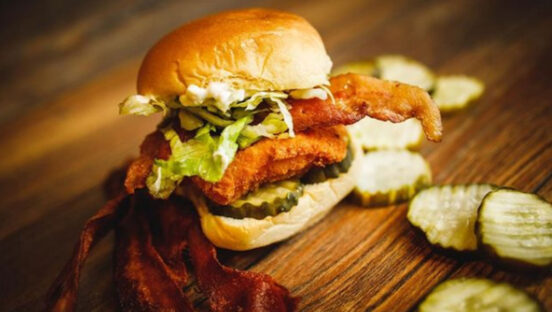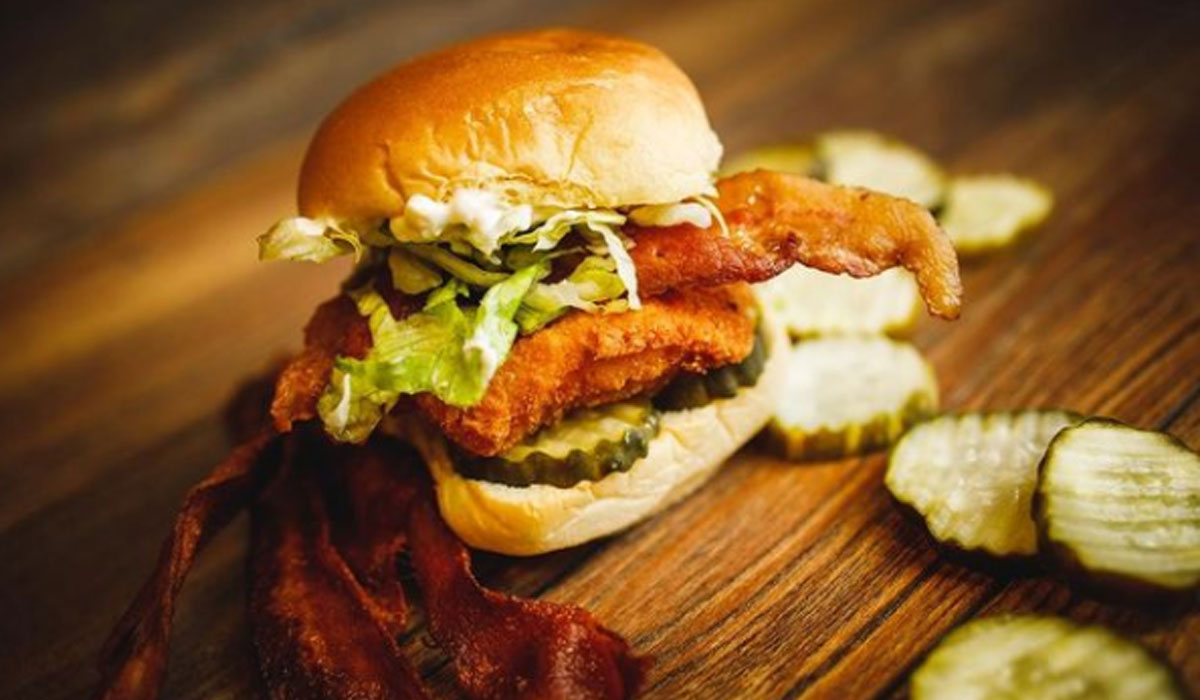“I grew up in a health food family,” says Rich Wagner, president of Nature’s Table. Wagner’s father, Francis, was a chemist, owned health food juice company Wagner Excello Juice in Illinois, and was also an investor in Vine and Harvest, a vitamin, smoothie, and frozen yogurt shop opened up by Wagner’s uncle, Dick Larsen, in 1977 in Melbourne, Florida. In 1983, Wagner found himself moving down from Chicago—where he grew up—to help rebrand that Vine and Harvest in the Melbourne Square Mall food court into the Nature’s Table we know today. “I grew up with this type of food, and I really wanted to bring it to the public,” Wagner says.
A year later, Bryan Buffalo—Wagner’s good friend from high school—joined the team, and he, Wagner, and Larsen officially set up the Nature’s Table Franchise Company in 1986. “What’s kind of unique about the three of us,” Wagner says, “is, we were all behind the counter, in the back of the house.” For the first 15 years of business, Wagner, Larsen, and Buffalo each had their own store and compared notes along the way.
Today, the brand is more than 70 locations strong. They maintain a flexible footprint model that allows them to franchise in locations big and small: from a 16,000-square-foot store in a Jacksonville, Florida, office building boasting a 64-foot counter and a design-your-own salad bar to a 250-square-foot shop sharing a kitchen with another brand off Florida’s Turnpike. In recent years, you might have picked up a Nature’s Table panini or salad in an airport, hospital or college campus, too. “That’s been the current growth vehicle for us,” Wagner says. “It’s more non-traditionals.”
Late next year, the brand has plans to open up a location in a museum in Decatur, Alabama, called the Cook Museum of Natural Science. “The Cook family has a large pest-control company, and they’re building a museum with bugs, insects, and aquatic life,” Wagner says. “We’re excited about it. It’s a unique location to add to our other unique locations.”
“What we love to see is the passion and enthusiasm in our franchisees that we all had,” Wagner says. “With us being behind the counter for at least 15 years, we—and our potential franchisees—find it reassuring that we know what it’s like to sign a lease and take out a loan.” In this way, and in their flexible footprint model, Wagner thinks Nature’s Table is unique to the industry. “I don’t hear a lot of brands that are growing in the way that we are growing.”
Nature’s Table president Rich Wagner chats about the brand’s past success and what’s coming next.
Nature’s Table has been described as a “family affair” due to the number family members and close friends working together. What’s the trick to maintaining these professional and personal relationships?
Honesty, integrity, communication, and thick skin.
What’s your best advice to a potential Nature’s Table franchisee?
We really try to emphasize what you have to go through, but one thing that resonates is, I’ll say, “Make food for 50 of your friends every day, seven days a week for three months.” That’s what it’s like. Cook it, prepare it, order it, and clean it up.
What’s your best advice to a restaurant owner looking to open up a second location?
They have to delegate. When you go from one store to two stores, you’re doubling your growth. That requires delegation and monitoring of the numbers. I’d go back to understanding the true meaning of a P&L [profit and loss statement], not just knowing what your food-cost percentage is, but each category: where is there a culprit if the food cost isn’t where you hoped it should be? And, understand that you can’t be in both places at one time.
What’s your favorite item on the menu these days?
I like the Sesame Thai wrap. We brought that on in 2005. I was at a tradeshow and tasting these aiolis, and I just fell in love with the flavor profile [of this particular one]: a lot of lemongrass, shallots, and ginger. This was really a home run. We evolved [the wrap over] the last couple years. It always had chicken in there, along with Napa cabbage, green onions, and carrots. [But, the original version] had lo mein noodles and jasmine rice. We wanted to get ahead of the curve a little bit, so we changed the jasmine rice to brown rice and took out the lo mein crunchy noodles and put in sliced almonds. It still has a great flavor profile, but with better health benefits.
What’s on the horizon for Nature’s Table?
[In the beginning of 2018,] we’re bringing in a really cool [World Centric] bowl, that is actually a plant fiber–based bowl. It turns into soil in 90 days. We’re pretty proud of that.
A big part of our success is we’ve changed out our menus every three years, so we’ll be rolling out another one in mid-2018. I really think a lot of our success is there’s empowerment in the customer. There’s just so many [meal] combinations that you can do. [For this new launch,] there will probably be another vegetable smoothie. We had great success with our Kale & Spinach smoothie—we use real spinach and real kale, it’s not a powder. And there will probably be a little more Mediterranean [influence], bringing in tzatziki and tabouli.







